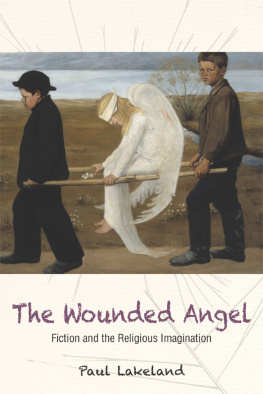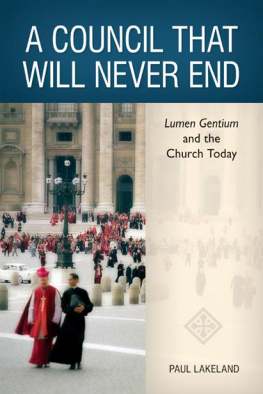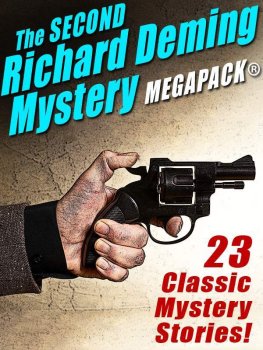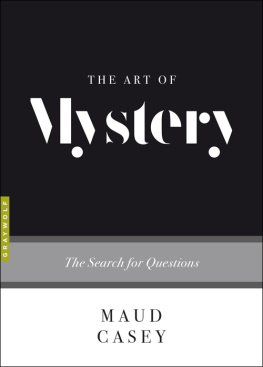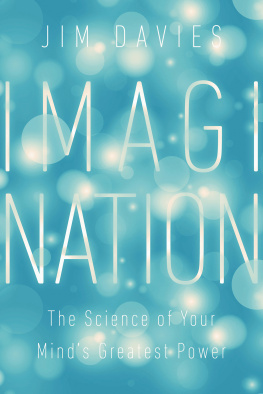The Wounded Angel considers the uses of so-called secular literature to convey illuminations of mystery, the unsayable, the hidden otherness, the Holy One. Saint Ignatius urged us to find God in all things, and Paul Lakeland demonstrates how thats theologically possible in fictions whose authors had no spiritual or religious intentions. A fine and much-needed reflection.
Ron Hansen
Santa Clara University
Renowned ecclesiologist Paul Lakeland explores in depth one of his earliest but perduring interests: the impact of reading serious modern fiction. He convincingly argues for an inner link between faith and religious imagination. Drawing on a copious cross section of thoughtful novels (not all of them edifying), he reasons that the joy of reading is more than entertainment but rather potentially salvific transformation of our capacity to love and be loved. Art may accomplish what religion does not always achieve. The numerous titles discussed here belong on ones must-read list!
Michael A. Fahey, SJ
Fairfield University
Paul Lakeland claims that the work of the creative artist is always somehow bumping against the transcendent. What a lovely thought and what a perfect summary of the subtle and significant argument made in The Wounded Angel. Gracefully moving between theology and literature, religious content and narrative form, Lakeland reminds us both of how imaginative faith is and of how imbued with mystery and grace literature is. Lakelands range of interestsColeridge and Louise Penny, Marilynne Robinson and Shusaku Endois wide, and his ability to trace connections between these texts and relate them to large-scale theological questions is impressive. This is an essential read for those interested in the relationship between the religious and literary imaginations.
Anthony Domestico
Assistant Professor of Literature
Purchase College, SUNY
Cover design by Ann Blattner. The Wounded Angel by Hugo Simberg (18731917). Image courtesy of Wikimedia Commons.
2017 by Order of Saint Benedict, Collegeville, Minnesota. All rights reserved. No part of this book may be reproduced in any form, by print, microfilm, microfiche, mechanical recording, photocopying, translation, or by any other means, known or yet unknown, for any purpose except brief quotations in reviews, without the previous written permission of Liturgical Press, Saint Johns Abbey, PO Box 7500, Collegeville, Minnesota 56321-7500. Printed in the United States of America.
Library of Congress Cataloging-in-Publication Data
Names: Lakeland, Paul, 1946 author.
Title: The wounded angel : fiction and the religious imagination / Paul Lakeland.
Description: Collegeville, Minnesota : Liturgical Press, 2017.
Identifiers: LCCN 2016045751 (print) | LCCN 2017005771 (ebook) |
ISBN 9780814646229 | ISBN 9780814646472 (ebook)
Subjects: LCSH: FictionReligious aspectsChristianity. | Religion
and literature.
Classification: LCC PN3351 .L35 2017 (print) | LCC PN3351 (ebook) |
DDC 809.3/9382dc23
LC record available at https://lccn.loc.gov/2016045751
Contents
Introduction
All art of the highest order is religious in essence.
(Simone Weil)
Every truly great work of art orients you to what isnt there,
what cant be seen or described or named.
(Martin Scorsese)
Im certain that the only meanings that are worth anything in a
work of art are those that the artist himself knows nothing about.
(Virginia Woolf)
In the last ten years or so of the thirty-five years I have been teaching theology I have increasingly turned to works of fiction in order to focus the attention of undergraduates, who much as they often resist reading are certainly more comfortable with a novel than a theological treatise. At times I have wondered if all I am doing here is what Mark Edmundson does with literature, when he says that humanism is the belief that it is possible for some of us, and maybe more than some, to use secular writing as the preeminent means for shaping our lives. So I have turned the question around, to ask if in fact there is much difference at all between the struggle to shape ones life and the struggle to believe. For a person with a fully formed faith, there is no question but that it shapes the believers life, maybe that it is the shape of that life, though not in a way that all growth is over and everything is closed. Faith can grow richer, and it can die. Not everyone has been gifted with this kind of faith, however, and in our day lots of people are persuaded that they would not want it, even if they are not really aware of what the it is. Both of these kinds of people have been present in my classes and they are in all of our lives. So in what ways might fiction be an appropriate conduit of information and inspiration in the task of being more and more fully human? How, indeed, can fiction aid faith, andequally importanthow can the elements of transcendence that lie behind the greatest fiction influence the secular reader?
During the same ten or so years I have also written four books on different aspects of the Second Vatican Council and its relationship to the role of laypeople in the church. This present book takes a very different direction, but there are two important theological takeaways from the work of the council that to a high degree inform and to some extent motivate the work of these pages. In the first place, Vatican II affirmed the ubiquity of divine grace. God is at work everywhere in the world, and while the church has a particular role to play it has no monopoly on grace. Second, following this understanding of divine grace and taking it in a slightly more radical direction, section 44 of the Pastoral Constitution on the Church in the Modern World, Gaudium et Spes, was at pains to point out that while the church has much to offer the secular world, it also has much to learn from it. So while there will be no further reference to the council and no more quotations from its documents, the conviction that church and world dialogue on a level playing field in the light of grace suffuses everything that follows here.
There are two supporting roles for literature to play in peoples lives: one directed more toward those for whom the act of faith already shapes their lives, and one for those for whom it is not or not yet real. The work of the creative artist is always somehow bumping up against transcendence, hinting at the unsayable even in the process of saying something quite definite or important that is not itself the transcendent. For the person of faith, then, fiction offers a wider perspective on the scope of grace by telling a story that integrates grace and sin in a way that defeats simplistic oppositions between the two. No person of faith doubts that we are all both graced and sinful, but grace and sin are so often held apart, while fiction may insist that they are present not only in the same person but perhaps even in the same act. The complex attractiveness of great fiction to the person of faith (or is it seen by some as a threat?) is that it makes it impossible to separate out sin and grace. For the person who does not possess faith in the narrow sense, fiction of course presents the same mix of sin and grace, but now in a way that makes it possible for this person to begin to see that in accepting the very fusion of sin and grace in individuals and communities there is a statement being made about loving acceptance that does not make sense in our ordinary categories and which therefore offers the invitation to look beyond simply what-is. To the person of faith, fiction supports love of the world as it is and contradicts the simplistic separation of the sacred and the profane. To the searcher or the agnostic, fiction teases with intimations of a beyond that may be either unnerving or intriguing but cannot be ignored.

